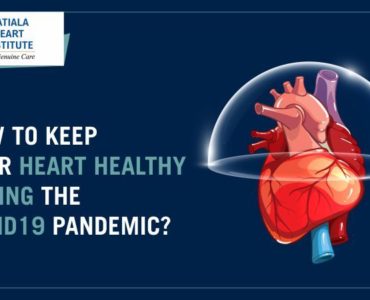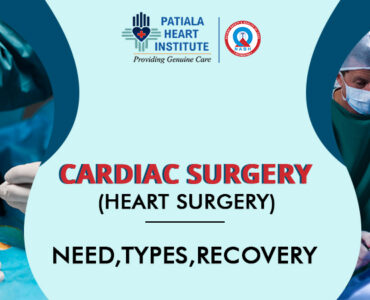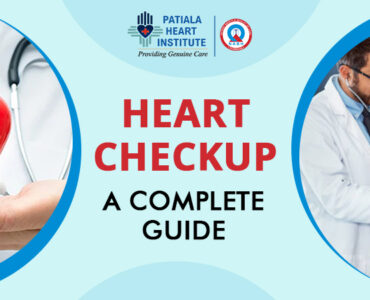As the mercury rises and the sun’s scorching heat envelopes us, we find ourselves seeking solace in the cool comfort of air-conditioned rooms and icy beverages. The stifling summers bring with them various challenges, particularly when it comes to our health.
While most of us focus on staying hydrated and protecting our skin from the blazing sun, we often overlook one vital organ that is silently battling the heat – our heart. The heart requires special care and attention during the summer months. The rising temperatures can strain this vital organ immensely, leaving us vulnerable to a range of cardiovascular complications.
Let’s uncover the secrets to safeguarding our hearts in the face of scorching summer temperatures. By understanding the risks, adopting healthy habits, and making informed choices, we can ensure that our hearts remain resilient and strong, allowing us to enjoy the joys of summer fully.
Impact of Sun Exposure on Heart Health
While we often associate sun exposure with the risk of sunburn and skin damage, it is important to recognize that prolonged exposure to sunlight during summer can also have implications on heart health. The scorching summer heat and intense ultraviolet (UV) radiation can directly affect the cardiovascular system, leading to various cardiovascular complications. Understanding these risks is crucial for taking proactive steps to protect your heart during sunny days.
- Increased blood pressure: Prolonged sun exposure can lead to an increase in blood pressure levels. The body’s natural response to heat is to redirect blood flow to the skin to promote cooling, which in turn leads to reduced blood flow to other organs, including the heart. This redistribution of blood can cause a temporary rise in blood pressure, putting additional strain on the cardiovascular system.
- Dehydration: Prolonged exposure to sunlight can lead to excessive sweating and fluid loss, increasing the risk of dehydration. Dehydration affects the body’s ability to regulate blood pressure and can lead to thickening of the blood, making it difficult for the heart to pump blood effectively. This places extra stress on the heart and increases the risk of cardiovascular complications.
- Heat-related illness: Heat exhaustion and heat stroke are serious conditions that can result from prolonged exposure to high temperatures. These conditions can directly impact the heart and cardiovascular system. Heat stroke, in particular, is a medical emergency and can lead to organ damage, including the heart.
- Arrhythmias: Some people may experience an increased risk of cardiac arrhythmias during hot weather. The heat can disrupt the body’s electrical system, leading to abnormal heart rhythms or irregular heartbeats. Individuals with a history of arrhythmias or heart conditions may be more susceptible to disruptions in the heart’s electrical system and should be particularly cautious during summer.
Tips for Protecting Your Heart During Summers
To safeguard your heart health during the summer months, it’s crucial to take proactive steps by heart specialist to stay cool and minimize the strain on your cardiovascular system. Here are some valuable tips to help you beat the heat and protect your heart:
Staying Hydrated
One of the most important things you can do to protect your heart during the summer heat is to stay hydrated. Drink plenty of water throughout the day, even if you don’t feel thirsty. Dehydration can put additional stress on your heart and lead to a range of health issues. Aim for at least eight glasses of water daily, and increase your intake if you’re engaging in physical activities or spending time outdoors.
While caffeinated beverages, sugary drinks, and alcoholic beverages may be tempting, these drinks can dehydrate the body. Opt for water as your primary source of hydration, and if you want to add some flavors, infuse it with fresh fruits or herbs for a refreshing twist.
Incorporating Hydrating Food
In addition to drinking water, incorporating hydrating food into your diet can further support your heart health during the summer. Many fruits and vegetables have high water content, making them excellent choices for staying hydrated. Include hydrating foods like watermelon, cucumbers, strawberries, oranges, avocados, peaches, tomatoes, celery, and leafy greens in your meals and snacks. These foods provide hydration and deliver essential vitamins, minerals, and antioxidants that benefit your heart and overall health.
Excessive sodium consumption can also contribute to high blood pressure, a significant risk factor for heart disease. Choose low-sodium or no-salt-added products, and flavor your meals with herbs, spices, and citrus juices instead of relying on salt. By reducing your sodium intake, you can better protect your heart and promote optimal cardiovascular health.
Dressing Appropriately
Choosing the right clothing can make a significant difference in keeping your body cool and protecting your heart from heat. Opt for lightweight and breathable fabrics, such as cotton and linen, that allow air circulation and promote sweat evaporation. Loose-fitting clothing allows proper heat dissipation, keeping you cooler. Additionally, wearing light-colored clothing can reflect sunlight and reduce heat absorption. Dark-colored clothes absorb more heat, making you feel warmer. So opt for lighter shades to stay cool and comfortable during summer.
Avoiding Extreme Heat
When the sun is blazing, and the temperature is hot, it is best to avoid exposure to extreme heat as much as possible. Limit your time outdoors, especially during the peak sunlight hours. If you need to go outside, find shade or take frequent breaks in cool, air-conditioned spaces.
When you are indoors, use fans or air-conditioners to maintain a comfortable temperature. Keeping your living environment cool protects your heart health, provides relief from the heat, and promotes better overall well-being.
Being Mindful of Physical Activities
Regular exercise is important for cardiovascular health, but modifying your physical activity routine during hot weather is essential to prevent overexertion. Engaging in intense physical activities in extreme heat can strain your heart and increase the risk of heat-related illnesses.
Consider adjusting your daily workout schedule to early mornings or late evenings when the temperature is comparatively cool. If available, take advantage of indoor options such as a gym or fitness center with air conditioning. Alternatively, you can opt for low-intensity activities like yoga and swimming, which can be gentle on your heart while providing the benefits of physical activities.
While these tips and strategies can greatly contribute to protecting your heart during the summer heat, it’s important to remember that everyone’s health needs are unique. It is crucial to consult with a heart specialist for personalized advice, especially if you have pre-existing heart conditions or are on medication. Regular check-ups and cardiac monitoring can help ensure that you are taking appropriate measures to protect your heart.
If you are in need of expert cardiovascular care, consider reaching out to Patiala Heart Institute, a renowned heart care centre in Patiala. Our team of highly experienced heart specialists in Patiala can provide personalized guidance, conduct thorough assessments, and tailor treatment plans to suit your specific needs. Prioritize your heart health by scheduling a consultation with Patiala Heart today.
Are There Any Warning Signs Of Heat Stroke That I Should Be Aware Of?
Heat stroke is a severe heat-related illness that requires immediate medical attention. Warning signs of heat stroke include a high body temperature, headache, rapid heartbeat, dizziness, nausea, confusion, and loss of consciousness. If you experience any of these symptoms, it is important to seek immediate medical attention.
Is There A Connection Between Mental Health And Heart Health During Hot Weather?
High temperatures, increased humidity, and disruptions in routine can lead to stress and anxiety, which can impact cardiovascular health. Taking care of your mental well-being through relaxation techniques, staying cool, and seeking support can indirectly support your heart health during the summer heat.







